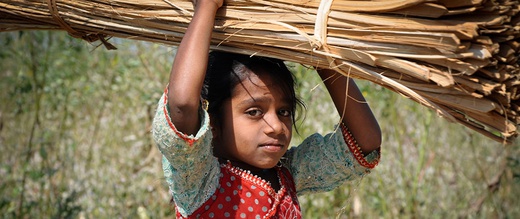Extreme poverty and hunger are two haunting specters that have cast a long shadow across the global landscape. Despite concerted efforts over the last few decades, which have indeed led to significant strides towards alleviating these conditions, questions linger: Is the decline in such dire circumstances sufficient? Are we merely skimming the surface, or are we delving into the profound depths of systemic transformation? This discourse will illuminate the Bahá’í teachings on these pressing issues, while concurrently examining the complexities and challenges that remain.
The Bahá’í perspective posits that the alleviation of poverty and hunger is not merely a charitable act but a moral obligation. The concept of oneness of humanity imbues this issue with a sense of urgency. It presents an intriguing metaphor: humanity as a single organism. Just as the well-being of each cell is vital to the health of the entire body, the welfare of individuals in impoverished conditions is integral to the flourishing of society. The deterioration of any segment may manifest as disease, resulting in societal malaise.
In aligning with the principle of oneness, Bahá’í teachings emphasize the inherent dignity and worth of every individual. Extreme poverty strips away this dignity, reducing individuals to mere statistics or marginalized voices. This reductionist view can be likened to viewing a multifaceted diamond through a pinhole — one sees only a sliver of its beauty. Consequently, achieving a world free of extreme poverty and hunger entails recognizing the multifarious dimensions of each person’s experience. It invites a collaborative approach, leading us to embrace multifaceted solutions.
Declining poverty rates substantiate progress, yet quantitative data alone do not encapsulate the qualitative aspects of poverty. While it is commendable that global poverty rates have decreased, it is imperative to delve into the narratives behind the numbers. Are we witnessing the emergence of resilience and empowerment among marginalized populations? Or are such declines the result of transient economic conditions that may falter under stress? As Bahá’í teachings illuminate, true progress must engender not just economic stability but also spiritual and social upliftment.
Moreover, we confront the harsh reality of food insecurity, which remains a pervasive blight. The scars of hunger form an indelible mark on the fabric of human dignity. The progress made thus far invites reflection: Is it merely a flicker amidst an otherwise enduring darkness? The juxtaposition of declining hunger statistics with persistent food deserts reveals a paradox. Many communities are still beleaguered by inadequate access to nutritious food. This contradiction compels us to advocate for systemic changes that dismantle the barriers preventing equitable access to resources.
The Bahá’í faith champions the empowerment of individuals and communities through education and knowledge. Education serves as the bedrock upon which the edifice of societal transformation can be built. It cultivates critical thinking, nurtures innovation, and fosters a sense of agency. In tackling extreme poverty and hunger, educational initiatives must be inclusive, particularly for marginalized voices, who have historically been excluded from the discourse surrounding these challenges. Empowering women, in particular, is central to the Bahá’í teachings, as their elevation plays a pivotal role in combating poverty and hunger. When women are educated and empowered, entire communities flourish.
Nevertheless, the alignment of efforts against extreme poverty and hunger with sustainability remains an essential consideration. The Bahá’í teachings advocate for a balanced approach that incorporates not just immediate relief but also long-term sustainability. The overexploitation of resources and environmental degradation can exacerbate conditions of poverty and hunger. Sustainable practices must be integrated into development strategies, emphasizing not only the improvement of living conditions but also the preservation of the planet for future generations. The metaphor of a garden, requiring mutual care and attention, illustrates the need for humans to cultivate not just socio-economic growth but ecological harmony.
Moreover, the intersectionality of poverty and hunger with broader global issues cannot be overlooked. The influences of biases, systemic inequities, and political instability often serve as the antagonist in this narrative. The Bahá’í principle of justice enjoins us to strive for equity and fairness across all domains of society. Achieving true progress requires addressing these underlying injustices, fostering a culture of accountability and responsibility amongst individuals as well as institutions.
As we contemplate the question, “Is it enough?”, we must confront the gap between progress and the aspirations set forth by Bahá’í teachings. While the decline in extreme poverty and hunger is a commendable achievement, there exists a clarion call for deeper introspection. The beauty of this human tapestry lies in our interconnectedness; no thread should be overlooked or left unwoven. Only through collaborative, multifaceted endeavors can we unravel the complexities of extreme poverty and hunger and weave a future synonymous with equity, dignity, and abundance.
The Bahá’í commitment to this cause is not merely an exercise of benevolence; it is a clarion call to manifest the principles of unity, justice, and sustainability. As the world continues on its trajectory towards advancement, may it do so with a resolute commitment to uplifting every individual, ensuring that no one is left behind in the quest for a world devoid of extreme poverty and hunger.
